Get Involved
NCST’s work increases access to homeownership, promotes resilient neighborhoods, and advances racial equity by advocating for policy change.
The Middle Neighborhoods National Steering Committee was formed in 2019 to determine the methods, structure, and resources to sustain a long-term effort that brings attention and support to America’s middle neighborhoods. The Steering Committee is currently comprised of 12 members, including prominent practitioners, policymakers, researchers, and funders working at national, state, and local levels. The Steering Committee advises the National Community Stabilization Trust and provides input to NeighborWorks America in their leadership of the middle neighborhoods initiative.
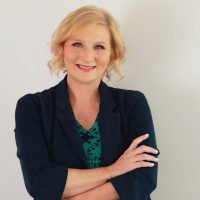
Lori Feild Schwarz, AICP is the Principal and Owner of LEAP Strategic Solutions Consulting (LEAPSSC). LEAPSSC assists governments, nonprofit organizations and corporate entities with consulting services that drive positive change and facilitate growth. Schwarz aims to inspire people and organizations to embrace effective leadership practices, foster meaningful engagement, conduct thorough assessments, and implement strategic and comprehensive planning at all levels, from executive leadership to neighborhood groups, and community wide. Ms. Schwarz has served as Chair of the national steering committee for Middle Neighborhoods since 2019.
Schwarz served as the inaugural Director of Neighborhood Services for the City of Plano, Texas, which includes the BEST Neighborhoods, Community Services and Property Standards Divisions, for nine years. The Plano Neighborhood Services team administered nationally recognized programs such as Love Where You Live and the Great Update Rebate. In 2019, the department was also named the Code Enforcement Department of the year by the American Association of Code Enforcement. She also served as Plano’s Comprehensive Planning Manager and was project manager for the 2017 Daniel Burnham Award winning plan, Plano Tomorrow.
Prior to moving to the Dallas-Fort Worth area in 2013, she served the City of Galveston for twelve years in multiple roles, including Interim Director of Planning and Community Development. Ms. Schwarz holds a master’s degree in Historic Preservation from the University of Georgia and received the Graduate Certificate in Local Government Management from the University of Texas at Dallas. She is a member of the American Institute of Certified Planners (AICP) and a Texas Registered Code Enforcement Officer.
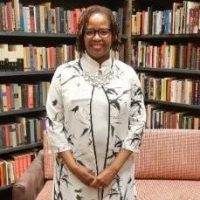
Fears is an economic development expert who specializes in strategic planning, financial modeling, community development financing, and program management. Fears’ work at GCI advances business, workforce and housing development locally and connects three business clusters to the region. At GCI, Fears created a new Chatham Center Chicago, a branded commercial retail area that has an accompanying online directory of 200 merchants and service providers. Recently she secured a MacArthur Foundation and Exelon Corporation grants for GCI. Previously, Fears developed and secured partial funding for two community development corporation plans a $37 million 38-block plan for a Detroit neighborhood; and a $17 million nine-block plan for an Atlanta neighborhood. Fears is a Harvard Loeb Fellow.
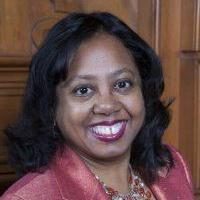
Kamla Lewis is the Senior Housing Development Project Manager at the Cuyahoga County Land Bank. Previously, Lewis was the Director of Neighborhood Revitalization for the City of Shaker Heights, a first ring suburb of Cleveland, Ohio and is nationally known for its historic architecture and commitment to diversity. Her role encompassed a broad range of responsibilities, including housing policy development and advocacy, neighborhood engagement, attracting private investment in new and existing homes, and developing creative ways to maintain the competitiveness of a community with a hundred-year-old housing stock. Lewis is a graduate of both Princeton and Cambridge Universities, with an academic background in political science and development economics. She has over 30 years of community development experience, working at municipal, county, regional and international governmental agencies on issues related to housing, transportation, food banking, economic development and strengthening neighborhoods. She has served on several non-profit boards and is currently on the boards of Policy Matters Ohio, and the Shaker Heights Development Corporation, and also volunteers with the Princeton Prize in Race Relations.

Tiffany Smith is the Associate Director of Southside Neighborhood Strategies & Operations at Neighborhood Housing Services of Chicago. As a second-generation Chatham resident, Tiffany believes homeownership is the foundation of healthy vibrant communities and the primary building block leading to wealth generation. This is clearly seen in her approach to the development and implementation of neighborhood strategies. From developing educational programming to promoting homeownership and grant programs through positive marketing initiatives, Ms. Smith delivers key resources to help residents buy, fix, and keep their homes. Prior to joining NHS, Tiffany developed her engagement skills in both the media and business processes through her work with clients such as the New York Times and Washington Post. Her efforts led to an increase in user engagement, customer satisfaction, and retention to facilitate organic growth. Tiffany Smith holds a B.S. in Organizational Behavior from Northwestern University.

Nedland is the principal of Fall Creek Consultants. Nedland is known for her skills and passion for neighborhood strategy and neighborhood branding and marketing. Nedland is an award-winning trainer at the national NeighborWorks Training Institute on topics related to neighborhood stabilization, marketing and sales. Nedland also coaches nonprofits in the use of Success Measures data collection tools to evaluate neighborhood quality of life outcomes. Nedland also organizes the Middle Neighborhoods Community of Practice alongside two other experienced community development professionals.

Jason Powers is the SVP of CDC Advancement & Resilience at Cleveland Neighborhood Progress. Previously, Powers was the Director of the Middle Neighborhoods Initiative for the City of Cleveland where he has served from April 2019 to February 2022. The initiative was co-developed by the Cleveland Foundation as part of a city led partnership to provide long term strategic support within municipal government. Prior to his work with the City of Cleveland, Powers was the Director of Marketing and Development at the Old Brooklyn Community Development Corporation. There he worked with his development team on projects to support their middle-income community focusing on place based marketing, data driven pilot programs and a public health lens to community development. Before returning to Cleveland he worked at NeighborWorks America in Washington, D.C. as the National Public Affairs and Communications manager supporting a network of over 250 community development nonprofits. His work took him around the country to support partner organizations in their communications strategy and neighborhood positioning efforts. Earlier in his career Powers served as legislative advisor to Congressman John W. Olver the Chairman of the Appropriations subcommittee on HUD and DOT. He holds degrees in finance and economics from Indiana University Kelley School of Business and the City University of London.

Singh leads NeighborWorks America’s support for comprehensive community development efforts that build vibrant local communities that provide equitable opportunities for people to thrive. Singh oversees the Stable Communities, Community Building and Engagement, Rural and Healthy Homes and Communities Initiatives and the work of these teams to elevate and strengthen local practice through grant making, technical assistance, capacity building, peer-to-peer learning, demonstration projects, stakeholder convenings, and research. Prior to joining NeighborWorks in 2012, Singh was a Program Officer at LISC where he managed multiple programs delivering technical assistance and training to nonprofits. Singh got his start in community development at Historic Saint Paul, a nonprofit dedicated to preserving the historic character of his hometown of St. Paul, Minnesota.

Previously, Verespej was the Executive Director of Old Brooklyn CDC, serving the largest neighborhood in Cleveland with over 30,000 residents and assets such as the Cleveland Metroparks Zoo and MetroHealth. Under his leadership, the corporation was named the 2017 CDC of the Year by the Ohio CDC Association. In 2016 the organization established an innovative community healthy strategy that blends public health and community development. It has facilitated the redevelopment of multiple historic buildings in the neighborhood, launched a successful weekly summer festival, and initiated a cross-sector education program. He supervises and manages all functions of the corporation that includes real estate and economic redevelopment, community organizing and service delivery. Prior to joining the CDC, Verespej spent four years at Ohio City Incorporated as the Director of Operations and Advocacy. He is the Past-President of the Case Western Reserve University Alumni Association (CWRU BA ’07, MBA ’11) and a former Chair of the Leadership Council for the Cleveland Leadership Center.

Woodruff joined the National Alliance of Community Economic Development Associations (NACEDA) in September 2010, becoming executive director in January 2012. During a time of significant political and economic challenges for community development, Woodruff saw this as an opportunity to take NACEDA to a new level of success and sustainability. As our country emerges from the great recession, he believes community and economic development will be a critical tool for those communities and neighborhoods that are organized, demanding, and capable of instituting change.
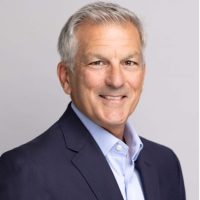
Tony Semone is Director of Homeownership Services for Neighborworks Salt Lake. He oversees all residential and commercial lending, homebuyer education and financial literacy programs. The programs serve cities in Salt Lake County and the commercial fund lends nationally to other NeighborWorks nonprofits. He will be overseeing the newly established Community Land Trust. He has over 20 years of experience in residential mortgage lending as a Manager and originator for several large banks and as the area manager with Bank of America, he conducted monthly first-time home buyer workshops.

Ian Beniston is the Executive Director of the Youngstown Neighborhood Development Corporation (YNDC). Ian has been involved with YNDC since the idea for the organization was conceived in 2008. YNDC’s planning and development work has resulted in more than $75 million in neighborhood investment in the past ten years. YNDC has been awarded the CDC of the Year award in the State of Ohio twice in the past decade and has received numerous regional, state and national awards for the results of its work. Ian holds a Master of City and Regional Planning from The Ohio State University and a Bachelor of Arts in Sociology from Youngstown State University. He is a member of the American Institute of Certified Planners and has obtained Housing Development Finance Professional certification from the National Development Council. Ian resides in Youngstown, Ohio with his family.

Tom Goddeeris is the Chief Operating Officer of Detroit Future City (DFC). In this role, Tom provides key leadership in strategic planning, management, and connecting organization vision, values and programmatic priorities. Tom has three decades of leadership experience in community development and engagement in the City of Detroit. Prior to joining DFC, Tom led the Grandmont Rosedale Development Corporation (GRDC) on the west side of Detroit for over 25 years, growing the nonprofit from a start-up to an award-winning, well-established community development organization. Tom has a master’s degree in architecture from Lawrence Technological University and a bachelor’s degree in architecture and urban planning from the University of Michigan.
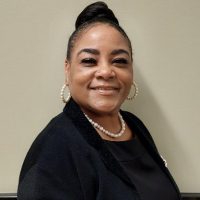
Kimberly Smith-Drake is currently the Community & Economic Development Manager for the Washington University Medical Center Redevelopment Corporation (WUMCRC) in St. Louis, MO. Kimberly is an experienced professional administrator with an established track record of service, assisting organizations, businesses, institutions and individuals with meeting and exceeding business goals and organizational objectives. Kimberly brings proven expertise in guiding business operations, municipal management, non-profit strategy, and community improvement. She is dedicated to the implementation of economic and community development place making that improves quality of life and builds equitable and sustainable eco-systems. Kimberly has a background in public administration, organizational change management, corporate philanthropy and non-profit administration.
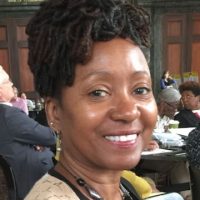
Deborah Moore served as Director of Neighborhood Strategies for Neighborhood Housing Services of Chicago bringing her mission-based passion and proven grassroots leadership to each of the communities that NHS has impacted during her 25-year tenure. She directly managed the growth of urban neighborhoods, south suburban municipalities, and place-based initiatives that affected her and the organization’s vision for change. Often positioned as a bedrock member of community leadership, Deborah was a vital element in Chicago’s transition through the Great Recession and subsequent economic revival in the greater Chicagoland footprint. In 2007, Ms. Moore was awarded the Community Hero Award by the Greater Auburn Gresham Community Development Corporation for her innovative work and continued commitment to the Auburn Gresham Community. In 2019 she was selected by Mayor Lori Lightfoot to sit on the Chicago Plan Commission to further lend her expertise and grassroots connections for further re-invigoration of Chicago’s communities of color. She continues to amplify the voices of resident leaders and neighborhood development through her consulting practice, Moore Community Consulting, with a focus on homeownership, resident engagement and strategic planning.

Robert “Bob” Pipik currently holds the position of President and Chief Executive Officer of Healthy Neighborhoods, Inc. Prior to joining Healthy Neighborhoods in 2022, Bob held senior level positions with the City of Baltimore’s Department of Housing and Community Development as well as the City’s Research and Strategic Planning department. Bob’s past experience also includes Chief Operating Officer of The Aequo Fund, a philanthropic real estate investment fund, based in Baltimore. Bob received a Master’s degree in City/Urban Community & Regional Planning from the Massachusetts Institute of Technology (MIT) and a Bachelor’s degree from Columbia University.
NCST’s work increases access to homeownership, promotes resilient neighborhoods, and advances racial equity by advocating for policy change.